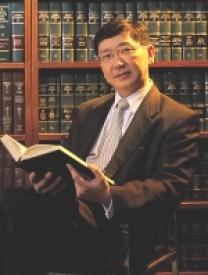The ‘Rule of Law’ Plenum?: Assessing Legal Reform after the Fourth Plenary Session of the CCP’s 18th Central Committee
Panel Discussion
Panelists include:
Jacques deLisle, Professor of Law, University of Pennsylvania
Johannes Chan, Professor of Law, University of Hong Kong
Wang Xixin, Professor of Law and Vice Dean, Peking…
Some Reflection on the Democratic Movement in Hong Kong
Johannes Chan, Professor of Law, University of Hong Kong
Johannes Chan specializes in human rights, constitutional and administrative law, and has published widely in these fields. His recent books include Law of the Hong Kong Constitution (…
University of Pennsylvania Joins President Jimmy Carter for 70-City Live Program on China
Jimmy Carter, Former President Ira Belkin, Executive Director of the U.S.-Asia Law Institute, NYU Law
Former President Jimmy Carter will join audiences in 70 locations nationwide for a live “town hall” meeting on the U.S.-China relationship.
Some of the world’s most critical issues, including…
China’s Legal System--or Governing by Diktats
Stéphanie Balme, Columbia University Law School Alliance Program Visiting Professor
This talk presents some results of a study which assesses recent decades of legal reform in China. Constructing and analyzing a dataset of all laws and administrative regulations promulgated between 1978 and 2014, it…
Understanding China's Booming Relations with Africa: A Historical Perspective
Howard French, Associate Professor, Columbia University Journalism School
Howard French received his B.A. from the University of Massachusetts – Amherst. He worked as a French-English translator in Abidjan, Ivory Coast in the early 1980s, and taught English literature at the University…
Hong Kong: The Umbrella Revolution
Panel Discussion
Tens of thousands of protesters have taken to the streets of Hong Kong since late September, demanding democracy and captivating global attention. What kind of "…
Occupy Central in Hong Kong, the Sunflower Movement in Taiwan: Popular Resistance in Greater China
Thomas B. Gold, Professor of Sociology, University of California at Berkeley
For many years, China has been successful at utilizing a variety of means (such as formal agreements, investments, preferential trade) to insert itself into the economies of Hong Kong and Taiwan. But 2014 has seen…
Chinese Rights Advocates: Plight and Prospects
China and Human Rights Series
LU Jun, Beijing Yirenping Center, Visiting Scholar, US- Asia Law Institute, New York University School of LawZHOU Dan, LGBT Lawyer, Visiting Scholar, U.S.-Asia Law Institute, New York University School of Law
LU Jun has been active in China’s public interest sector since 2003, focusing primarily on anti-discrimination and other civil rights issues in the fields of public health, mental health, and food and drug safety…
Making Ownership Matter: Prospects for China's Mixed-Ownership Economy
Marshall W. Meyer, Tsai Wan-Tsai Professor, Professor of Management and Sociology, The Wharton School, University of Pennsylvania
At the Third Plenum of the 18th Chinese Communist Party (CCP) Central Committee in November 2013, China’s leaders strongly endorsed the concept of a mixed ownership economy, which the Plenum’s sixty point Decision…
Why is My Milk Blue? China’s Food Safety Crisis and Scale Politics
John Yasuda, Post-doctoral Fellow, Center for the Study of Contemporary China
Why is China’s food safety system failing? Rather than explanations based on the country’s level of economic development, corruption, and state capacity, I argue that China’s food safety failures result from its…







